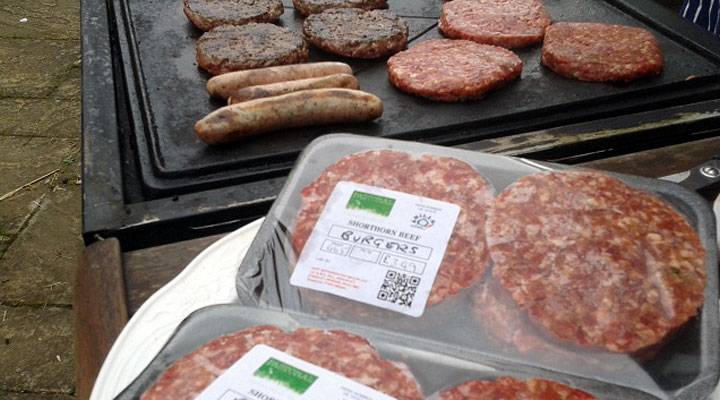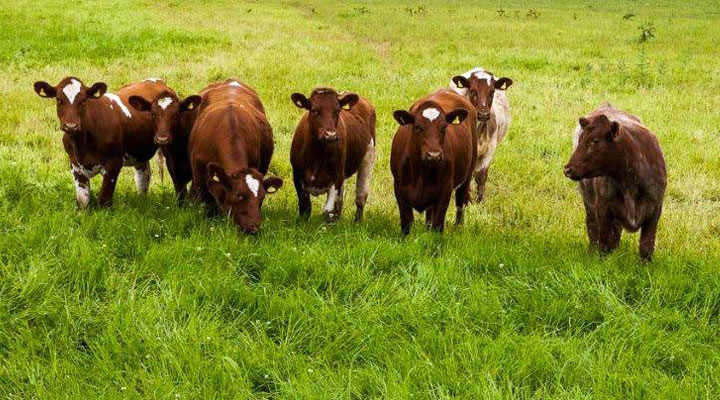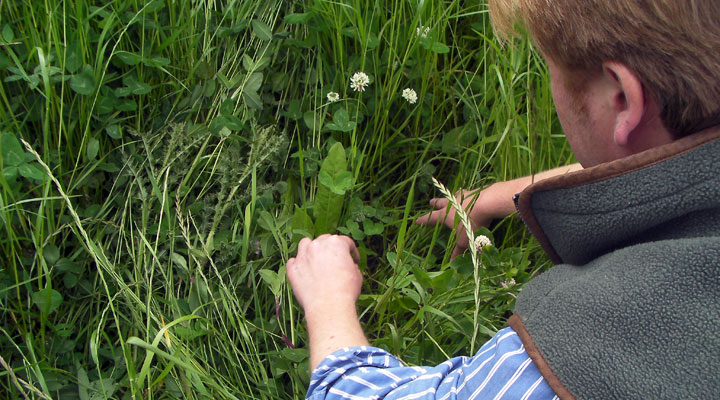Plenty of take-home messages from first-ever Pasture-Fed study tour
Fourteen farmers from as far afield as Scotland and the South-West of England descended on Nottinghamshire for the first farm visit at John Hill’s mixed farm in Edingley. John’s family kindly prepared a BBQ lunch including beef burgers made from his own pasture-fed beef reared on the farm – complete with the Pastoral label and a QR code to trace the animal’s history on our smart phones.

The group toured John’s farm, and took a detailed look at some of the herb-rich pastures he has created for summer grazing and for making conserved forage for winter feeding. His organic shorthorn cattle reach prime condition purely on pasture at around 21 months, averaging at 605 kilos liveweight. All meat is sold direct from the farm gate.

Re-building Soil
Max Howard based near Retford, further north in Nottinghamshire, was the next host. Here Max runs 600 head of cattle of predominantly Aberdeen Angus breeding on pastures now in rotation with his arable and vegetable crops. The cattle provide a profitable means by which he is rebuilding his soil after years of intensive arable production. Cow fertility and calving is managed tightly for maximum efficiency. Two thirds calve in Spring, the rest in Autumn and heifers calve down at two years of age. Animals not kept for breeding are generally finished by 26 months and Max is supplying finished beef animals every month of the year.
Members stopped off at The Saracen’s Head in Southwell for an overnight stay where discussions on pasture-fed livestock continued in the bar until after midnight!
Low-cost production
The final visit during the next morning was to John Turner’s mixed farm in Lincolnshire where he breeds and finishes Limousin cattle on a pasture-fed system. John and his brother Guy used to be dairy farmers and know a thing or two about getting the best from pasture!
They measure performance of both pasture and livestock on a regular basis, continually improving genetics to meet market requirements just from grass. The farm also participates in the EBLEX Stocktake benchmarking service and scores very well for its costs of production.
Take-home messages
The study tour concluded with a facilitated discussion reflecting on the things learnt and take-home messages. Some of the biggest learnings were to do with soil management and how to optimise its biology for productive pasture and healthy livestock. Measuring and monitoring the many different parameters for pasture-fed livestock was also identified as being very important.
Christine Page from Smiling Tree Farm in Shropshire who was on the tour had this to say:
“I learned a huge amount and the interaction with other delegates was really inspiring. Count me in for the next one!”

Members can read the detailed study tour report, including more details of each farm, memorable phrases from the visits and pledges made by all attendees – actions they intend to take at home after participating on the tour.
If you are already a member and cannot see the download link below, please sign-in to access the report.
Not a member? Find out the benefits here.



